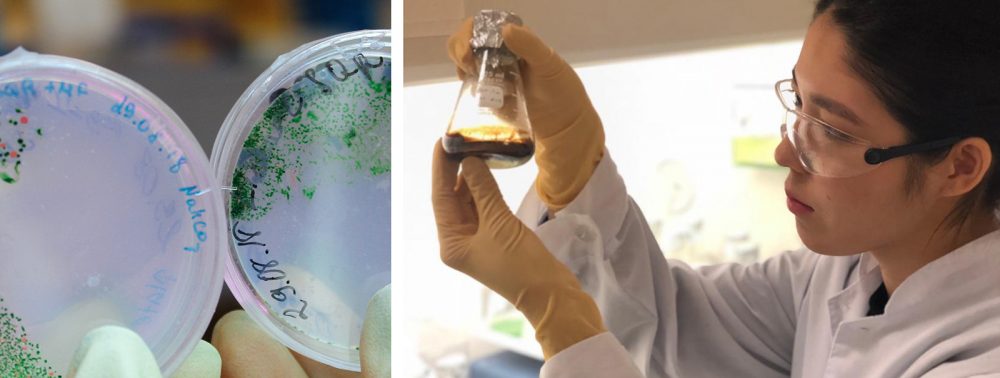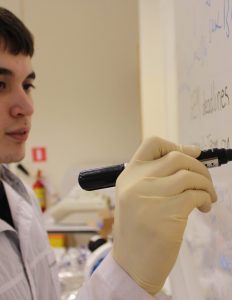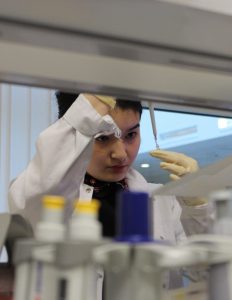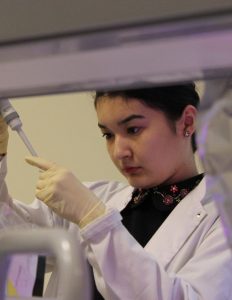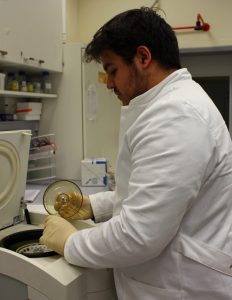NU students’ project on hydrogen fuel production to be presented at the iGEM Competition
At the end of October, a team of Nazarbayev University students will participate in the International Genetically Engineered Machine (iGEM) competition. The team is led by a professor from the School of Sciences and Humanities, Dr. Abdullah Mahboub. The iGEM competition is held annually in Boston, Massachusetts, USA and is the largest international competition in the field of synthetic biology, with more than six thousand students and teachers from around the world among the attendees. During the past two iGEM competitions in 2017 and 2018, Nazarbayev University students brought home gold medals.
This year, students will present their project on the production of nanomaterials from genetically modified cyanobacteria. This product can be used as an electrocatalyst and can simultaneously produce hydrogen gas, which can be used as an environmentally friendly fuel in modern hydrogen cars.
– In this regard, we propose to integrate two unique solutions into one method, – said Atabek Bektash, the team leader and a third-year student of the School of Sciences and Humanities.
Cyanobacteria developed by the team are capable of turning sulphide in chemical waste into elementary sulphur. The biomass is then converted into graphite materials with elements of sulphur and nitrogen. Research has found that these graphite materials outperform the current platinum electrocatalyst used today in hydrogen cars such as Toyota Mirai and Hyundai Nexo.
It is noteworthy that during the start-up phase of the project, that the team was able to participate in the “ABC Incubation Program” with the support of Shell Kazakhstan, and that the team’s research has been displayed in the “Green Tech” exhibition. Related to these start-up phase activities the team won a certificate for 300,000 tenge as a special prize from JSC “Astana Innovations”, as well as one month of training in the “Investment Readiness Program” at the Seedspace Nur-Sultan site. The team of developers includes 21 people, all of them are the second and 3d-year students of two NU schools: School of Sciences and Humanities and School of Engineering and Digital Sciences.


